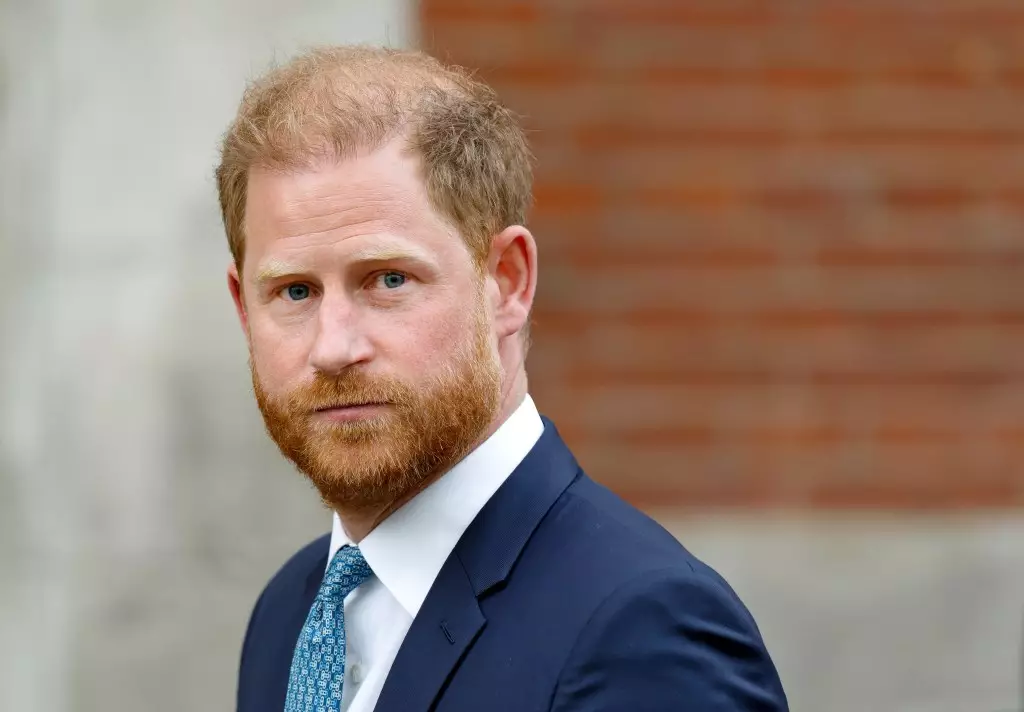In the wake of a recent High Court loss regarding his security costs, Prince Harry finds himself once again dominating news headlines in the UK. The implications of this legal battle and the accompanying media frenzy highlight the complex intersection of celebrity, royal privilege, and personal safety. Harry’s claims of being victimized by an “establishment stitch-up” after losing his legal case provoke a myriad of conversations surrounding not only his safety but also his relationship with his family and the British monarchy.
The public spectacles that follow his every move — from a misadventure of door-knocking on the wrong houses during a recent visit to London — raise questions about not just his state of mind but also the efficacy of his security arrangements. One can’t help but feel a mix of sympathy and incredulity. Wouldn’t someone of Harry’s stature have a detailed plan, complete with coordinates of friends’ residences? It’s bewildering that the man would find himself standing helplessly on the streets of London, seemingly misplaced in a city that was once his home.
Perceptions of Safety and the Role of the Media
Harry’s on-camera moment of confusion, captured and disseminated by The Sun, must feel like a double-edged sword. On one end, there’s an undeniable element of public intrigue; it’s hard to ignore how the son of the King ends up confused on the streets of London, prompting fleeting moments of humor. On the other end, the incident highlights a deeper, more troubling narrative about Harry’s mental state — one that the media exploits relentlessly.
In many ways, this situation embodies a perfect storm of vulnerabilities colliding with instant public scrutiny. How does one reconcile the image of a bewildered prince with the dire assertions he made about his own safety? The disconnect is glaring. One local’s unembellished commentary that “it’s a bit odd he didn’t seem to have a clue” puts Harry in stark opposition with his vocal concerns about security risks, highlighting a troubling irony. If he genuinely felt endangered, one might expect him to be more cautious, less prone to random explorations of the streets.
The Family Divide: Charles and the Future of Royal Security
Harry’s legal struggle to secure state-funded protection unfurls broader themes of familial estrangement and loyalty. His statements suggest he expects intervention from King Charles III, yet the monarchy’s refusal to engage on his behalf creates a rift that seems to deepen with each passing day. Advisors to the King have emphasized that any parental support would veritably create a conflict of interest, highlighting the labyrinthine complexities within royal duty versus personal concern.
In this context, Harry’s frustrations become almost palpable. Are his estrangements with family members exacerbating his fears? The high-profile legal battles and public statements may only serve to further alienate him from those who could genuinely provide support. The sense that he once had the protection of royal duty only to find himself stripped of it creates a haunting paradox. It ferments a sense of isolation in a world where he once viewed access and security as his birthright.
The Irony of Fame and Isolation
The saga of Prince Harry encapsulates an enduring dilemma faced by celebrities and public figures: the paradox of fame and isolation. His attempts to reclaim some semblance of privacy and safety are enmeshed within a relentless media cycle that scrutinizes every moment. The irony of his situation is striking; he sought to step back from royal duties and lead a more private life, yet his every misstep is magnified under the public eye.
Harry’s narrative challenges us to think critically about the societal inclination to scrutinize public figures — often forgetting that, within the glittering veneer of celebrity, there exists a person grappling with real anxieties. The tug-of-war between privacy and public interest raises essential ethical questions about how we engage with those in the spotlight. Is it fair to expect a man to remain composed while engaged in a legal battle that strikes at the core of his identity?
Thus, the Prince’s dilemma is not only a personal struggle; it reflects larger societal themes that resonate with anyone caught between the quest for safety and the relentless demands of public life.
